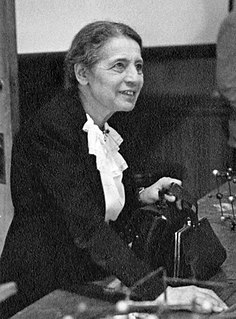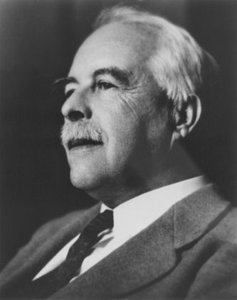A Quote by Hugh Ross
If the strong nuclear force were slightly weaker, multi-proton nuclei would not hold together. Hydrogen would be the only element in the universe.
Related Quotes
The flash would prove that proton decay really happens. The flash would mean that the matter of the proton - the solid stuff - had turned into the energy of the flash (E-mc2). Totally. Nothing left behind. No ash. No smoke. No smell. Nada. One moment it's there, the next moment - pffft - gone. What would it mean? Only this: Nothing lasts. Nothing. Because everything that exists is made of protons.
If it [the universe] was expanding fairly slowly, the force of gravity would cause it eventually to stop expanding and then to start contracting. However, if it was expanding at more than a certain critical rate, gravity would never be strong enough to stop it, and the universe would continue to expand forever.
There are 15 constants- the gravitational constant, various constants about the strong and weak nuclear force, etc.- that have precise values. If any one of those constants was off by even one part in a million, or in some cases, by one part in a million million, the universe could not have actually come to the point where we see it. Matter would not have been able to coalesce, there would have been no galaxy, stars, planets or people
O. Hahn and F. Strassmann have discovered a new type of nuclear reaction, the splitting into two smaller nuclei of the nuclei of uranium and thorium under neutron bombardment. Thus they demonstrated the production of nuclei of barium, lanthanum, strontium, yttrium, and, more recently, of xenon and caesium. It can be shown by simple considerations that this type of nuclear reaction may be described in an essentially classical way like the fission of a liquid drop, and that the fission products must fly apart with kinetic energies of the order of hundred million electron-volts each.
There was a concept a long time ago that you would do a different type of reactor called a "fast reactor," that would make a bunch of another element called plutonium, and then you would pull that out, and then you would burn that. That's called "breeding" in a fast reactor. That is bad because plutonium is nuclear weapons material. It's messy. The processing you have to get through is not only environmentally difficultly, it's extremely expensive.
There's no question that Saddam Hussein is a threat Yes, he has chemical and biological weapons. He's had those for a long time. But the United States right now is on a very much different defensive posture than we were before September 11th of 2001 He is, as far as we know, actively pursuing nuclear capabilities, though he doesn't have nuclear warheads yet. If he were to acquire nuclear weapons, I think our friends in the region would face greatly increased risks as would we.
The Goddess falls in love with Herself, drawing forth her own emanation, which takes on a life of its own. Love of self for self is the creative force of the universe. Desire is the primal energy, and that energy is erotic: the attraction of lover to beloved, of planet to star, the lust of electron for proton. Love is the glue that holds the world together.





































